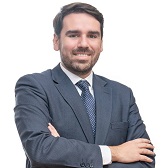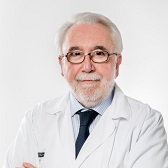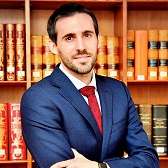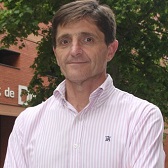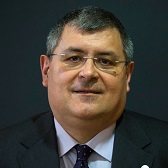
COVID-19 has highlighted the essential nature of health research and confirmed the crucial importance of data analytics models. The last five years had consolidated the process of implementing methodologies that incorporate retrospective analysis of large volumes of data in medical records. Likewise, prospective research, scenario simulation, predictive medicine and the development of decisional models and Artificial Intelligence require a massive use of health data.
Moreover, the analysis of a new infectious disease has shown how data analytics helps to provide a holistic view of the patient, not only from the dimension of their medical history but also from the comparative framework with thousands, even millions of people, and with an approach in which social, economic, climatic or demographic aspects are relevant. Moreover, if there is one thing that is crucial in a pandemic environment, it is to have a high quality model of predictive, preventive and population medicine.
This should force us to reflect on the nature of the use of personal data for the common good and forces a reconsideration of our legal culture in this area. The European Union's European data protection culture has cemented a model of technology development based on the guarantee of fundamental rights and the freedom of individuals. This reading is the correct one, and the General Data Protection Regulation affirms from its first recitals that data should be processed in the service of the human being, affirms the public interest of research and welcomes health research as a priority objective. So does the seventeenth additional provision on the processing of health data in our Organic Law on Personal Data Protection and guarantee of digital rights.
However, achieving these objectives requires a reasonable, intelligent and proportional reading of the objectives of the regulation, which is not always shared by operators. It is essential to promote patient and societal trust in the use of data for the common good, and to be able to consolidate highly efficient research models.
SPEAKERS
|
Regulatory Affairs Director en Microsoft España. |
President of the Spanish Professional Privacy Association. |
Full Professor of Internal Medicine at the Universitat de València. |
Director of Quality at Hospital la Fe. |
|
Foundation 29 Team. |
Head of the Spanish Innovative Medicines Platform at Farmaindustria. |
Board of Directors of the Spanish Professional Privacy Association. |
Regional Privacy Lead at Amgen SA. |
|
Full Professor of Legal philosophy at the Universitat de València and member of the Spanish Bioethics Committee. |
Director of the Privacy and Digital Transformation Chair of the Universitat de València. |
CONFERENCE
Opening of the Conference
Gabriel López Serrano, Director of Regulatory Affairs for Microsoft Ibérica; Marcos Mª Judel Meléndrez, President of the Spanish Professional Privacy Association.
Session 1: A model for health data research
Ricard Martínez, Director of the Privacy and Digital Transformation Chair of the Universitat de València.
Session 2: Health research and data analytics: state of affairs, challenges and opportunities
Josep Redón i Más, Full Professor of Internal Medicine at the Universitat de València; Bernardo Valdivieso, Director of Quality at Hospital la Fe.
Session 3: A data-driven research ecosystem
Julián Isla, Foundation 29 Team; Amelia Martín Uranga, Head of the Spanish Innovative Medicines Platform at Farmaindustria.
Session 4: Challenges for privacy professionals in health data research
Session 4: Challenges for privacy professionals in health data research
Eduard Blasi Casagran, Board of Directors of the Spanish Professional Privacy Association; Carmen Casado, Regional Privacy Lead at Amgen SA.
Session 5: Using data for the common good: ethical, legal and business challenges
Session 5: Using data for the common good: ethical, legal and business challenges
Vicente Bellver Capella, Full Professor of Legal philosophy at the Universitat de València and member of the Spanish Bioethics Committee; Gabriel López Serrano, Director of Regulatory Affairs for Microsoft Ibérica.
SHORT REVIEW SPEAKERS
- Gabriel López Serrano,Director of Regulatory Affairs for Microsoft. His professional career spans academic institutions, start-ups and leading technology companies. Former regulatory affairs manager specialising in international transactions and regulation in the Americas for AT&T Corp. Later he joined Nokia Corp. as Senior Lawyer and Director of Public Policy for Southern Europe in charge of various legal and public policy projects.
Currently Gabriel works at Microsoft as a Lawyer and Director of Regulatory Affairs for Spain and participates in various academic projects at the Universitat de València, the Foundation for Research on Law and Business (FIDE) and the Madrid Bar Association. He has been a speaker at major technology events in Spain and Europe on topics related to Intelligence.
- Marcos Mª Judel Meléndrez. President of the Spanish Professional Privacy Association.
- Josep Redón i Más, since 2006, Full Professor of Internal Medicine at the Faculty of Medicine of Universitat de València and, since 1995, Head of the Internal Medicine Department of the Clinical Hospital of Valencia. His research activity has been carried out in parallel to his clinical activity by implementing translational research in the field of Arterial Hypertension and Cardiovascular Risk. Lead researcher and participant in a large number of national and international projects. He has completed a Fellowship in Hypertension at the Department of Nephrology and Hypertension at Northwestern University (Prof. D Batlle) in Chicago and stays at the Department of Epidemiology and Preventive Medicine at Loyola University. Within the Editorial activity he is Member of the Editorial Board of indexed journals in the field of hypertension, associate editor of the Journal of Hypertension, reviewer of journals in the cardiovascular field and Internal Medicine and author of numerous invited editorials and review articles. It has 302 publications in indexed journals, a total of 13,384 citations and a cumulative impact factor of over 1,100. He has recently been awarded an Honorary Doctorate from Carol Davila University, Bucharest, and has received the Health Excellence Award from the European Institute of Health and Social Welfare.
- Bernardo Valdivieso, Director of Planning of the Valencia Health Department "LA FE". Director of the Area of Clinical Management Home Care and Telemedicine. Specialist in Family and Community Medicine. Doctor “Cum Laude” from the University of Murcia. Diploma in Clinical Services Management. Higher Diploma Holder in Clinical Epidemiology Research by the Carlos III Institute. Diploma in Healthcare Quality from the Valencian School of Health Studies. European Expert in Quality Management in Health Services by the Spanish Association for Quality. Diploma Holder in Senior Management in Health Institutions from the IESE Business School. Lead researcher of the Joint Research Unit on ICTs applied to the re-engineering of healthcare processes at the LA FE Health Research Institute, he has participated in several European projects, two of which are currently underway. Director of the Big Data and Digital Health Platform of the LA FE Health Research Institute.
- Julián Isla is Resource Manager for Artificial Intelligence group in Microsoft Consulting Services. He is software engineer by training and has 25 years of experience working on international IT companies. He has experience helping customers on digital transformation and leveraging the capacity or artificial intelligence to move organizations into automation. He is also chair and co-founder of Foundation 29, a NPO focused on how artificial intelligence can empower people to make decisions about their own health, based on the evidence provided by data and supported by automated interpretation systems. Julian is also the Chief Scientific Officer of the European Dravet Syndrome Federation, a European organization of patients with Dravet Syndrome. Julian is the father of Sergio, a young boy of eleven years old who has Dravet Syndrome. Despite of not having a neuroscience or medical background he gained the skills to be member of the Orphan Drug Committee at European Medicines Agency (EMA) as patient representative. Julian is also part of the Therapeutic Advisory Group for Eurordis, the biggest organization of rare diseases in Europe. In Spain he is member of Ciberer (Spanish Network for research on rare diseases) scientific advisory group. Julian holds a great combination of skills combining technology, medicine, science, clinical processes, patient engagement and regulation.
- Amelia Martín Uranga, Doctor in Law, has been responsible in Farmaindustria for 14 years for the Spanish Innovative Medicines Platform, an initiative under which public-private cooperation programmes are developed to promote biomedical research in Spain. In addition, she is a member of the Data Protection Working Group of EFPIA (European Federation of Pharmaceutical Industries) and has also participated in a public-private IMI consortium, called Project DO-IT, within the Big Data for Better Outcomes programme. Since recently, she has been a member of the Ethics Advisory Committee of the IMI-EHDEN project, which will establish a federated network of data sources from hospitals and primary care centres across Europe. Amelia is also Farmaindustria's representative on the CEOE's R&D Commission. Her research work has been carried out at the Inter-University Chair for Law and the Human Genome, of which she is a collaborator. For more than 20 years she has been a regular speaker at numerous national and international congresses, seminars and conferences. She has several publications on topics related to biotechnology and law, and teaches on various postgraduate courses at Spanish universities and business schools.
- Eduard Blasi Casagran is a member of the Board of Directors of the Spanish Professional Privacy Association. Data Protection Officer en Boehringer Ingelheim. Member of APEP since 2011. He has coordinated APEP's Catalan Group since then, organising events such as the ICT Dialogues in Barcelona. In addition to continuing this work, he will lead and coordinate APEP's Security Commission, among other functions.
- Carmen Casado, Regional Privacy Lead at Amgen SA; LLM Computer&Communications Law; CIPP/E; Iberian DPO. She has been a member of the Board of Directors of APEP Professor of the Master in Big Data Science at the UIC and in the Master in Digital Advocacy and NNTT of the USAL, member of ENATIC.
- Vicente Bellver Capella, Full Professor of Legal Philosophy and Political Philosophy at the Universitat de València and member of the Spanish Bioethics Committee. Director of the Political Legal Philosophy Department of the Universitat de València. His fields of research are human rights, political ecology, bioethics and Biolaw. He has published three books: “Ecología: de las razones a los derechos” (1994), “¿Clonar? Ética y Derecho ante la clonación humana” (2000, traducido al italiano en 2002) and “Por una bioética razonable” (2006). He has also published more than 175 papers in scientific journals or as book chapters. He was a member of the Steering Committee on Bioethics of the Council of Europe (2002-2008), of the Bioethics Advisory Council of the Valencian Community and is currently a member of the Spanish Bioethics Committee and of the Pontifical Academy for Life.
- Ricard Martínez, serves at the Universitat de València as a lecturer in the Department of Constitutional Law, Political and Administrative Sciences and is Director of the Privacy and Digital Transformation Chair. He directs the journal La Ley Privacidad and collaborates in health research projects such as DPO (BigMedylitics, CHAIMELEON), or data analytics (MATchUP). His research team supports public universities and research projects. Doctor in Law from the Universitat de València, he has devoted his research to the study of the fundamental right to data protection and to different issues related to the impact of information and communication technologies on private life. He is part of the Working Group of the Secretary of State for Digitalisation and Artificial Intelligence of the Ministry of Economic Affairs and Digital Transformation to draw up a Charter of Digital Rights. He has been president of the Spanish Professional Privacy Association. He has collaborated with different universities as a lecturer in undergraduate and postgraduate studies and has been responsible for the Studies Area of the Spanish Data Protection Agency.



